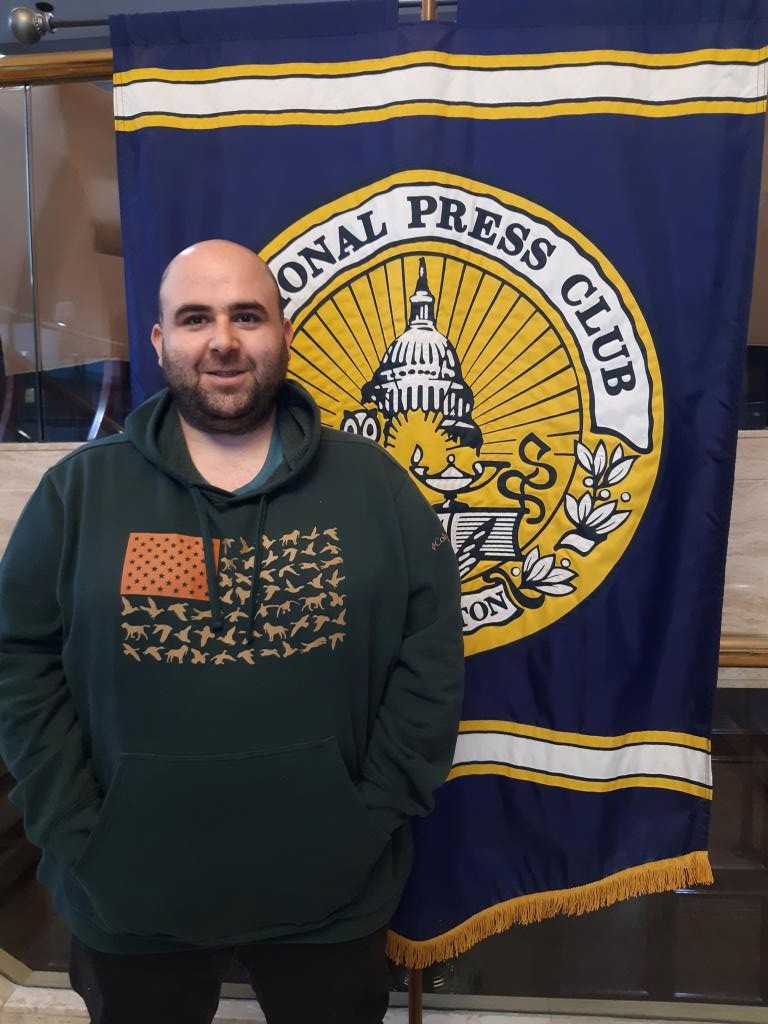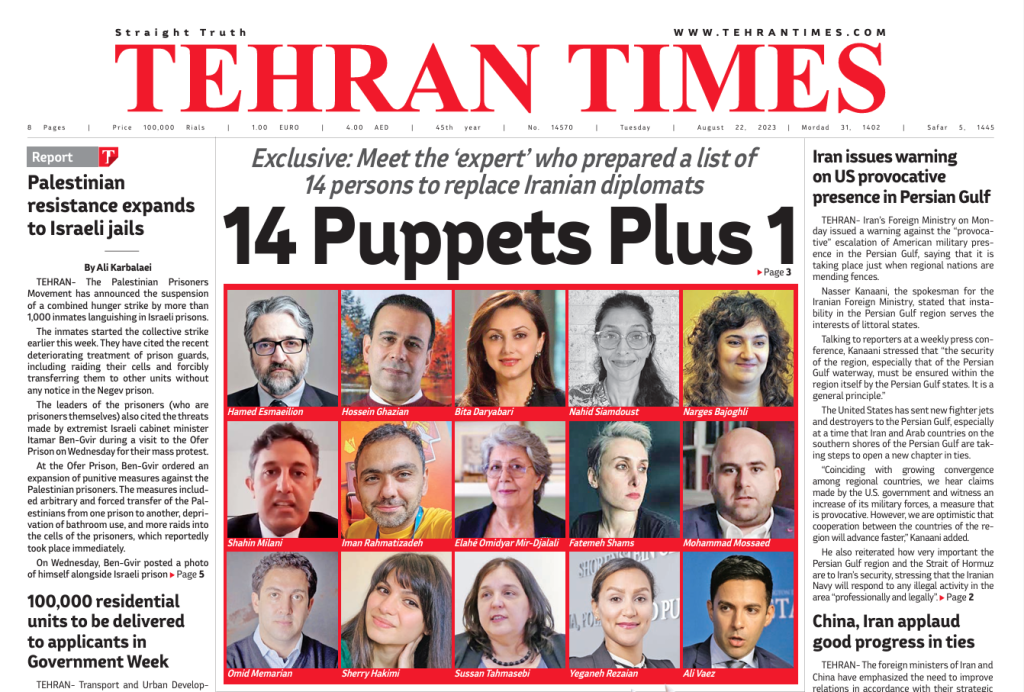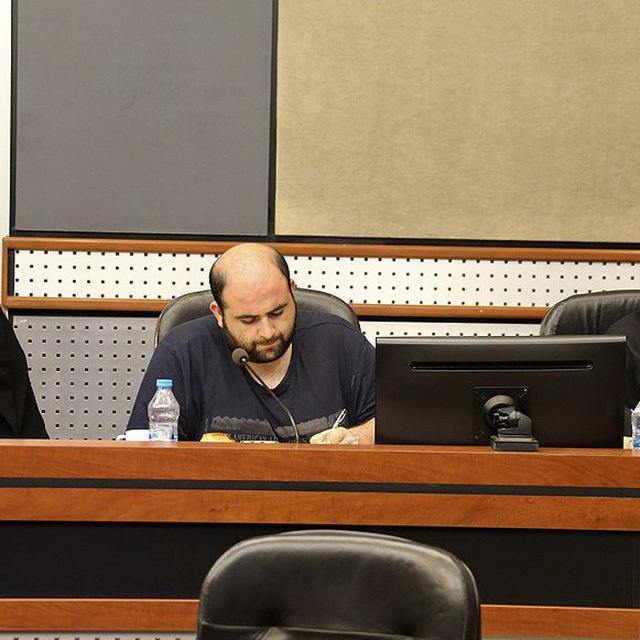Iranian journalist Mosaed finds safe haven on Club staff, far from persecution in his home country
Mohammad “Mo” Mosaed, the National Press Club's information technology (IT) service security manager, can relate to persecuted journalists. That's because he's one himself.
Mosaed, who joined the Club as a staffer in 2022, is being targeted by Iranian government leaders for his coverage of economic corruption. Iran has issued a nationwide arrest warrant for Mosaed.

As an investigative reporter for Shargh, Mosaed in 2019 published stories on his social media channel criticizing the Iranian government for increasing the price of gasoline. He also wrote about corruption and how top officials spent their oil money.
In response, Iranian authorities arrested Mosaed twice. After spending a couple weeks in locked up in 2019, Iran released him before briefly arresting him again in 2020 along with his wife, Ashi, who spent four months in prison. Though Mosaed only spent one night in jail after his second arrest, he was sentenced to five years in prison and two additional years of banishment from journalism.
Mosaed said Iranian authorities targeted his wife to send him a message for his work.
“I was so famous in Iran, and the government knows that the price to imprison me is so high,” he said. “They didn't want to pay that price. But they knew that if they arrest my family, it works and they can (silence me).”
Fleeing Iran
Told to report to prison, Mosaed instead fled Iran in early 2021. He crossed the mountainous northwestern border with Türkiye and successfully climbed over one fence, but couldn't get over a second fence. As he crossed during a cold winter season, Mosaed became stuck.
Fearing for his life, Mosaed saw he had cell phone service and called 911, where Türkiye border authorities responded. After initially declining to help him because they thought he was in Iran, Türkiye border authorities eventually rescued Mosaed after he provided coordinates on Google Maps demonstrating he was in Türkiye.

But Mosaed's plight wasn't over. Not only did Türkiye initially want to send him back to Iran, where he faced certain persecution, but Mosaed said staying in Türkiye was also unsafe. The Türkiye and Iranian governments are close, and Iran could reach him there.
Thanks to the help from journalist advocacy organizations such as the Committee to Protect Journalist (CPJ), which called for Türkiye not to repatriate Mosaed to Iran, he remained in Türkiye and eventually left for the United States with his wife.
Club IT job smooths transition to United States
Fortunate to escape death on a cold mountain and a lengthy prison stint, Mosaed started his new life in the United States. But it was initially a “nightmare,” he said.
Like other new immigrants fleeing persecution in their home countries, Mosaed was allowed to enter the United States but was unable to work. He had no family for support and was short of money.
After working jobs such as DoorDash food delivery for income, Mosaed, who has a computer science education, was approached by former Club executive director Bill McCarren about a part-time IT position at the Club. Mosaed accepted the job and said he has loved working at the Club because of its members and his staff colleagues.
“Every day, I'm learning ... different topics, different things,” he said. “(Guests) are coming every day with different ideas and you have this chance to learn from them.”
The Club has embraced Mosaed.
“He is an incredible journalist with an incredible story, and his bravery is inspiring,” Club President Emily Wilkins said. “The Club is proud to have him as part of our community and is grateful for the good work he does not only in the cybersecurity and technology space, but also in helping welcome other exiled reporters to the Club.”
Club helps journalists in exile
McCarren said the Club over the last few years has helped journalists in exile. The experience has given the Club an understanding of what they go through and help they might need with housing, education, jobs -- or even tacos.
The number of exiled hostages is growing, and their needs are becoming even more acute.
“We are studying the problem so that we might eventually secure funding to help increase the number of cases we can take on now and in the future,” McCarren said. “After all, we have the hardest to find ingredient — community.”

The Club has done a great job creating a community hub in Washington for exiled journalists, Mosaed said. Aside from their families, he said nobody cares more about the challenges faced by exiled journalists than Club staffers and members.
“The Club has a rich history of journalism, and the U.S. has a rich history of accepting new people who are exiled from their country,” he said. “I think the NPC is in the right place and is doing the right thing.”
Feeling safe, but not free from danger
Although Mosaed now has more stability in his life, his challenges with the U.S. immigration system and Iranian retribution against dissidents continue. He is allowed to work while he waits for his asylum interview, which could take years.
Mosaed said he feels safe in the United States, but not completely free from danger. The U.S. in January indicted an Iranian and two Canadian nationals for allegedly conspiring to murder two Maryland residents, one of whom defected to the United States from Iran.
“The Iranian government has a long history of terror inside and outside the country,” Mosaed said. “If they feel that it's necessary to kill you, they will do it, but hopefully they won't be able to.”
